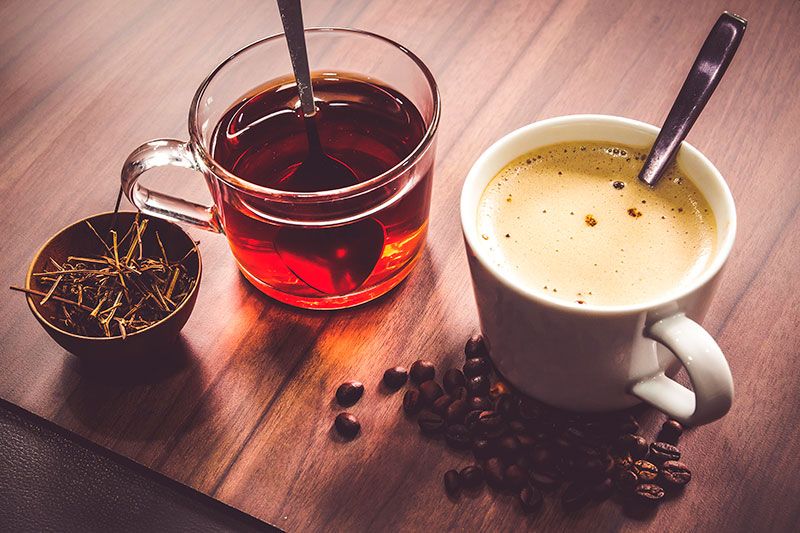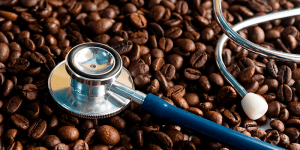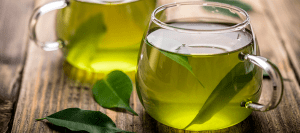Efecto del té verde, té negro, y el consumo de café en el riesgo de cáncer de esófago
27-04-2017
Estudio epidemiológico que explora la asociación entre el consumo de té y café con el riesgo de cáncer de esófago (CE). Las bases de datos consultadas fueron PubMed, ISI – Web of Science, China National Knowledge Infrastructure (CNKI), y Chinese VIP hasta octubre de 2011 y referencias de estudios encontrados. El modelo de efectos arbitrarios fue usado reunir los odd ratio (OR). 24 estudios de casos y controles y cohorte con 7376 casos de CE fueron incluidos en este meta-análisis. El OR acumulado de CE fue 0.77 (95 % CI: 0.57, 1.04) para el consumo de té más alto contra no consumo/consumo más bajo de té verde; pero fue estadísticamente significativo para estudios de casos y controles (OR = 0.70; 95 % CI: 0.51, 0.96) y para estudios realizados en China (OR=0.64; 95 % CI: 0.44, 0.95). Ninguna asociación significativa fue observada entre el consumo más alto contra no consumo/consumo más bajo de té negro y el riesgo de CE (OR = 1.35; 95 % CI: 0.86, 2.11). Una asociación significativa inversa límite entre el consumo más alto contra no consumo/consumo más bajo de café y el riesgo de CE fue encontrada (OR = 0.88; 95 % CI: 0.76, 1.01). Para concluir, nuestros datos mostraron que tanto el té verde como el consumo de café, pero no el consumo de té negro, tiene efectos protectores sobre CE.
Zheng JS, Yang J, Fu YQ, Huang T, Huang YJ, Li D. Effect of green tea, black tea, and coffee consumption on the risk of esophageal cancer: a meta-analysis of observational studies. Nutr Cancer. 2013;65(1):1-16.
1. Parkin DM, Bray F, Ferlay J, and Pisani P: Global cancer statistics, 2002. CA Cancer J Clin 55, 74–108, 2005.
2. Jemal A, Bray F, Center MM, Ferlay J, Ward E, et al.: Global cancer statistics. CA Cancer J Clin 61, 69–90, 2011.
3. Suganuma M, Okabe S, Sueoka N, Sueoka E, Matsuyama S, et al.: Green tea and cancer chemoprevention. Mutat Res 428, 339–344, 1999.
4. Myung SK, Bae WK, Oh SM, Kim Y, Ju W, et al.: Green tea consumption and risk of stomach cancer: A meta-analysis of epidemiologic studies. Int J Cancer 124, 670–677, 2009.
5. Tang NP, Wu YM, Zhou B, Wang B, and Yu RB: Green tea, black tea consumption and risk of lung cancer: A meta-analysis. Lung Cancer 65, 274–283, 2009.
6. Zheng J, Yang B, Huang T, Yu Y, Yang J, et al.: Green tea and black tea consumption and prostate cancer risk: an exploratory meta-analysis of observational studies. Nutr Cancer 63, 663–672, 2011.
7. Wang JM, Xu B, Rao JY, Shen HB, Xue HC, et al.: Diet habits, alcohol drinking, tobacco smoking, green tea drinking, and the risk of esophageal squamous cell carcinoma in the Chinese population. Eur J Gastroenterol Hepatol 19, 171–176, 2007.
8. Gao YT, McLaughlin JK, Blot WJ, Ji BT, Dai Q, et al.: Reduced risk of esophageal cancer associated with green tea consumption. J Natl Cancer Inst 86, 855–858, 1994.
9. Wang Z, Tang L, Sun G, Tang Y, Xie Y, et al.: Etiological study of
esophageal squamous cell carcinoma in an endemic region: a populationbased
case control study in Huaian, China. BMC Cancer 6, 287, 2006.
10. Gao CM, Takezaki T, Wu JZ, Li ZY, Liu YT, et al.: Glutathione-Stransferases M1 (GSTM1) and GSTT1 genotype, smoking, consumption
11. Wang M, Guo C, Li M, Yu G, Yin X, et al.: A case-control study on the dietary risk factors of upper digestive tract cancer. Chin J Epidemiol 20, 95–97, 1999.
12. Islami F, Pourshams A, Nasrollahzadeh D, Kamangar F, Fahimi S, et al.: Tea drinking habits and oesophageal cancer in a high risk area in northern Iran: population based case-control study. BMJ 338, b929, 2009.
13. Ishikawa A, Kuriyama S, Tsubono Y, Fukao A, Takahashi H, et al.: Smoking, alcohol drinking, green tea consumption and the risk of esophageal cancer in Japanese men. J Epidemiol 16, 185–192, 2006.
14. Wu M, Liu AM, Kampman E, Zhang ZF, Van’t Veer P, et al.: Green te drinking, high tea temperature and esophageal cancer in high- and low-risk areas of Jiangsu Province, China: a population-based case-control study. Int J Cancer 124, 1907–1913, 2009.
15. Takezaki T, Shinoda M, Hatooka S, Hasegawa Y, Nakamura S, et al.: Subsite-specific risk factors for hypopharyngeal and esophageal cancer (Japan). Cancer Causes Control 11, 597–608, 2000.
16. Inoue M, Tajima K, Hirose K, Hamajima N, Takezaki T, et al.: Tea and coffee consumption and the risk of digestive tract cancers: data from a comparative case-referent study in Japan. Cancer Causes Control 9, 209–216, 1998.
17. Naganuma T, Kuriyama S, Kakizaki M, Sone T, Nakaya N, et al.: Coffee consumption and the risk of oral, pharyngeal, and esophageal cancers in Japan: the Miyagi Cohort Study. Am J Epidemiol 168, 1425–1432, 2008.
18. Tavani A, Bertuzzi M, Talamini R, Gallus S, Parpinel M, et al.: Coffee and tea intake and risk of oral, pharyngeal and esophageal cancer. Oral Oncol 39, 695–700, 2003.
19. Chen YK, Lee CH, Wu IC, Liu JS, Wu DC, et al.: Food intake and the occurrence of squamous cell carcinoma in different sections of the esophagus in Taiwanese men. Nutrition 25, 753–761, 2009.
20. Ren JS, Freedman ND, Kamangar F, Dawsey SM, Hollenbeck AR, et al.: Tea, coffee, carbonated soft drinks and upper gastrointestinal tract cancer risk in a large United States prospective cohort study. Eur J Cancer 46, 1873–1881, 2010.
21. Ganesh B, Talole SD, and Dikshit R: Tobacco, alcohol and tea drinking as risk factors for esophageal cancer: A case-control study from Mumbai,
India. Cancer Epidemiology 33, 431–434, 2009.
22. Turati F, Galeone C, La Vecchia C, Garavello W, Tavani A: Coffee and cancers of the upper digestive and respiratory tracts: meta-analyses of observational studies. Ann Oncol 22, 536–544, 2011.
23. Stroup DF, Berlin JA, Morton SC, Olkin I, Williamson GD, et al.: Metaanalysis of observational studies in epidemiology: a proposal for reporting. Meta-analysis Of Observational Studies in Epidemiology (MOOSE) group. JAMA 283, 2008–2012, 2000.
24. Hung HC,Huang MC, Lee JM,WuDC, Hsu HK, et al.:Association between diet and esophageal cancer in Taiwan. J Gastroen Hepatol 19, 632–637,
2004.
25. Greenland S and Longnecker MP: Methods for trend estimation from summarized dose-response data, with application to meta-analysis. Am J Epidemiol 135, 1301–1309, 1992.
26. Orsini N, Bellocco R, and Greenland S: Generalized least squares for trend estimation of summarized dose-response data. Stata J 6, 40–57, 2006.
27. Mu LN, Zhou XF, Ding BG, Wang RH, Zhang ZF, et al.: Study on the protective effect of green tea on gastric, liver and esophageal cancers. Chin J Prev Med 37, 171–173, 2003.
28. Terry P, Lagergren J, Wolk A, and Nyr´en O: Reflux-inducing dietary factors and risk of adenocarcinoma of the esophagus and gastric cardia. Nutr Cancer 38, 186–191, 2000.
29. Higgins JP, Thompson SG, Deeks JJ, and Altman DG: Measuring inconsistency in meta-analyses. BMJ 327, 557–560, 2003.
30. Egger M, Smith GD, Schneider M, and Minder C: Bias in meta-analysis detected by a simple, graphical test. Brit Med J 315, 629–634, 1997.
31. Duval S and Tweedie R: Trim and fill: A simple funnel-plot-based method of testing and adjusting for publication bias in meta-analysis. Biometrics 56, 455–463, 2000.
32. Chen Z, Chen Q, Xia H, and Lin J: Green tea drinking habits and esophageal cancer in southern china: a case-control study. Asian Pac J Cancer Prev 12,
229–233, 2011.
33. La Vecchia C, Ferraroni M, Negri E, D’Avanzo B, Decarli A, et al.: Coffee consumption and digestive tract cancers. Cancer Res 49, 1049–1051, 1989.
34. Garidou A, Tzonou A, Lipworth L, Signorello LB, Kalapothaki V, et al.: Life-style factors and medical conditions in relation to esophageal cancer by histologic type in a low-risk population. Int J Cancer 68, 295–299,1996.
35. Castellsagu´e X, Mu˜noz N, De Stefani E, Victora CG, Castelletto R, et al.: Influence of mate drinking, hot beverages and diet on esophageal cancer risk in south america. Int J Cancer 88, 658–664, 2000.
36. Onuk MD, Oztopuz A, and Memik F: Risk factors for esophageal cancer in eastern Anatolia. Hepatogastroenterology 49, 1290–1292, 2002.
37. Tverdal A, Hjellvik V, and Selmer R: Coffee intake and oral-oesophageal cancer: follow-up of 389 624 Norwegian men and women 40–45 years. Br
J Cancer 105, 157–161, 2011.
38. Cheng KK, Sharp L,McKinney PA, Logan RF, Chilvers CE, et al.: A casecontrol study of oesophageal adenocarcinoma in women: a preventable disease. Br J Cancer 83, 127–132, 2000.
39. Rossini ARAL, Hashimoto CL, Iriya K, Zerbini C, Baba ER, et al.: Dietary habits, ethanol and tobacco consumption as predictive factors in the development of esophageal carcinoma in patients with head and neck neoplasms.Dis Esophagus 21, 316–321, 2008.
40. Shono C, Suzuki N, and Kaiser HM:Will China’s diet follow western diets? Agribusiness 16, 271–279, 2000.
41. Ahmad N, Feyes DK, Nieminen AL, Agarwal R, andMukhtar H: Green tea constituent epigallocatechin-3-gallate and induction of apoptosis and cell
cycle arrest in human carcinoma cells. J Natl Cancer Inst 89, 1881–1886, 1997.
42. Yang GY, Liao J, Kim K, Yurkow EJ, and Yang CS: Inhibition of growth and induction of apoptosis in human cancer cell lines by tea polyphenols. Carcinogenesis 19, 611–616, 1998.
43. Dufresne CJ and Farnworth ER: A review of latest research findings on the health promotion properties of tea. J Nutr Biochem 12, 404–421, 2001.
44. Lambert JD and Yang CS: Mechanisms of cancer prevention by tea constituents. J Nutr 133, 3262S–3267S, 2003.
45. Wang ZY, Wang LD, Lee MJ, Ho CT, Huang MT, et al.: Inhibition of N-nitrosomethylbenzylamine-induced esophageal tumorigenesis in rats by
green and black tea. Carcinogenesis 16, 2143–2148, 1995.
46. de Boer JG, Yang H, Holcroft J, and Skov K: Chemoprotection against N-nitrosomethylbenzylamine-induced mutation in the rat esophagus. Nutr Cancer 50, 168–173, 2004.
47. Hashimoto T, He Z, Ma WY, Schmid PC, Bode AM, et al.: Caffeine inhibits cell proliferation by G0/G1 phase arrest in JB6 cells. Cancer Res 64, 3344–3349, 2004.
48. CavinC,HolzhaeuserD, ScharfG,Constable A, HuberWW,et al.:Cafestol and kahweol, two coffee specific diterpenes with anticarcinogenic activity. Food Chem Toxicol 40, 1155–1163, 2002.
49. Islami F, Boffetta P, Ren JS, Pedoeim L, Khatib D, et al.: High-temperature beverages and foods and esophageal cancer risk—a systematic review. Int J Cancer 125, 491–524, 2009.REFERENCES















